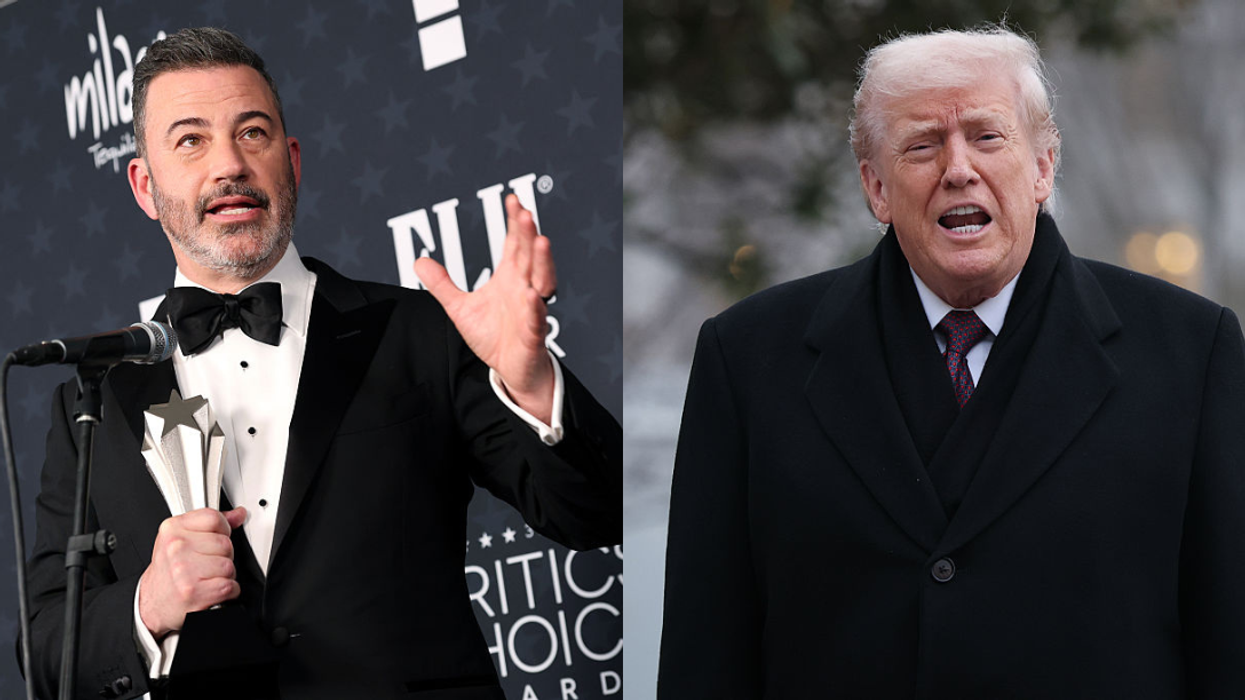Most voters don’t follow governor races outside of their own home state. That makes sense in a normal cycle, where the elections held in one state don’t so much impact what happens in another. But if 2020 taught us anything, it is that our electoral fates are intertwined with other states in ways we didn’t understand very well before. After all, it was ultimately Democratic governors in states like Michigan, Pennsylvania and Wisconsin who held their radical state legislators in check, deterring them from moving to appoint alternate slates of electors through the power of the governor’s veto. And it was Republican governors in Georgia and Arizona—two that happened to be true to their oaths of office and the constitution—who certified elections that their own party activists wanted to invalidate based on false fraud claims.
This is in part why a few key gubernatorial elections of 2022 will be so much more significant than most people presently realize. At stake are the governorships in the swing states of Georgia, Arizona, Wisconsin, Michigan, Nevada and Pennsylvania, the very six states that were still counting ballots well after Election Day and on which so much will ride in 2024.
So how do things look in these states? It appears they are a microcosm of the political chaos and extremism that has engulfed the nation since Trump began to rise to power.
The Democratic Incumbents
In Michigan and Wisconsin, Democratic governors are seeking re-election against a field of highly Trumpian contenders. I want to focus today on these states because we saw how having Democrats in the governors’ mansions there was critical to squelching electoral shenanigans at the county and state level and to securing an orderly electoral college certification.
In Michigan, Governor Whitmer will face off against an as-yet-unknown challenger, but with the GOP field flush with extremists, the risks for the state run high. At the top of voter concerns presently is the pandemic, though that could fade by next November. During her tenure, Whitmer was blasted for her strict Covid-19 protocols and even targeted in a kidnapping plot by anti-government terrorists. The leading GOP candidates include retired Detroit Police Chief James Craig, who is African American and a recent convert to the Republican Party and whom many hardcore MAGA voters distrust as too moderate. To his right is a bevy of right-wing standard-bearers including Tudor Dixon (a conservative commentator with Trumpian ties); Garrett Soldano, a chiropractor turned activist who railed against Whitmer’s Covid-19 restrictions; and self-funded car dealer Kevin Rinke, an “election irregularities” pusher who plans to pump $10mil into his race.
Neighboring Wisconsin is looking like it will endure a nasty fight in the GOP’s efforts to unseat Democratic Governor Tony Evers, who barely ousted former Republican governor Scott Walker in the blue electoral wave of 2018. In 2020, Joe Biden won the state by just over 20,000 votes, and false claims about election fraud have persisted and become a litmus test for Republican officeholders. Gov. Evers has been holding the line by vetoing highly gerrymandered Republican-drawn maps and, like his counterpart in Michigan, by having certified the 2020 results over the howls of Republicans and a slew of lawsuits (which all failed). His likely opponent is Walker’s former lieutenant governor, Rebecca Kleefisch, a former TV news anchor from Milwaukee who has embraced the worst aspects of the modern GOP: Trump praising, anti-mandate, Big Lie pushing, and anti-“Critical Race Theory.” Kleefisch also upped the political stakes considerably this fall when she announced that, if elected, she would sign a Texas-style anti-abortion ban if the Republican-dominated Wisconsin legislature were to send her one.
Democratic Pick-Up Opportunities
The 2022 gubernatorial races in the swing states of Arizona and Georgia will prove pivotal to how things play out two years later. If hard core Trumpian loyalists take power, the fate of 27 electoral college votes may be at stake should those states vote blue again but their new governors refuse to certify the results or otherwise defer to their Republican legislative majorities to appoint alternate electors—which was the very conspiracy hatched within the White House in 2020. With control of the Senate also dependent on the elections in Arizona and Georgia, these two states are key to just about everything important on the national political level.
In Arizona, GOP Governor Ducey is term-limited out and there is a scramble in the GOP primary to replace him. Judging from the frontrunners there, the primary winner will likely be a radical who embraces election fraud conspiracy claims. Leading the pack is Trump-endorsed Kari Lake, who like Kleefisch in Wisconsin was a former news anchor who left television to run for office. Lake has fully adopted Trump’s false position that he won Arizona in 2020 despite zero evidence to support that claim and several audits, including a dubious and privately-backed GOP one that actually confirmed Biden’s win. Secretary of State Katie Hobbs, who was a vocal critic of Trump’s election lies, is almost certainly going to be the Democratic candidate. Look for her to team up with Sen. Mark Kelly, who is running for reelection, as the faces of sane and competent government in Arizona.
Finally, in the “new swing state” of Georgia, incumbent GOP Governor Brian Kemp is about to endure a bruising primary against challenger David Perdue, who is backed by Trump and who, like Kari Lake in Arizona, dutifully repeats the false claim that the election in 2020 was stolen and has made it a central pillar of his campaign. Kemp remains the frontrunner but could be badly damaged in the primaries. And if Trump tells his voters to sit out the general if Kemp ultimately is the GOP nominee, that could give Democratic challenger Stacey Abrams a big leg-up in this possible rematch of 2018. (In a direct swipe at Kemp, Trump already has said people should prefer having Abrams over Kemp as governor.) Abrams will be running alongside Sen. Raphael Warnock as a kind of united ticket for Georgia, and they will deploy a well-honed, experienced, and well-funded campaign to motivate the African American and Biden coalition voters who delivered the two run-off election victories in January of this year.
For more political analysis, check out the Status Kuo newsletter.

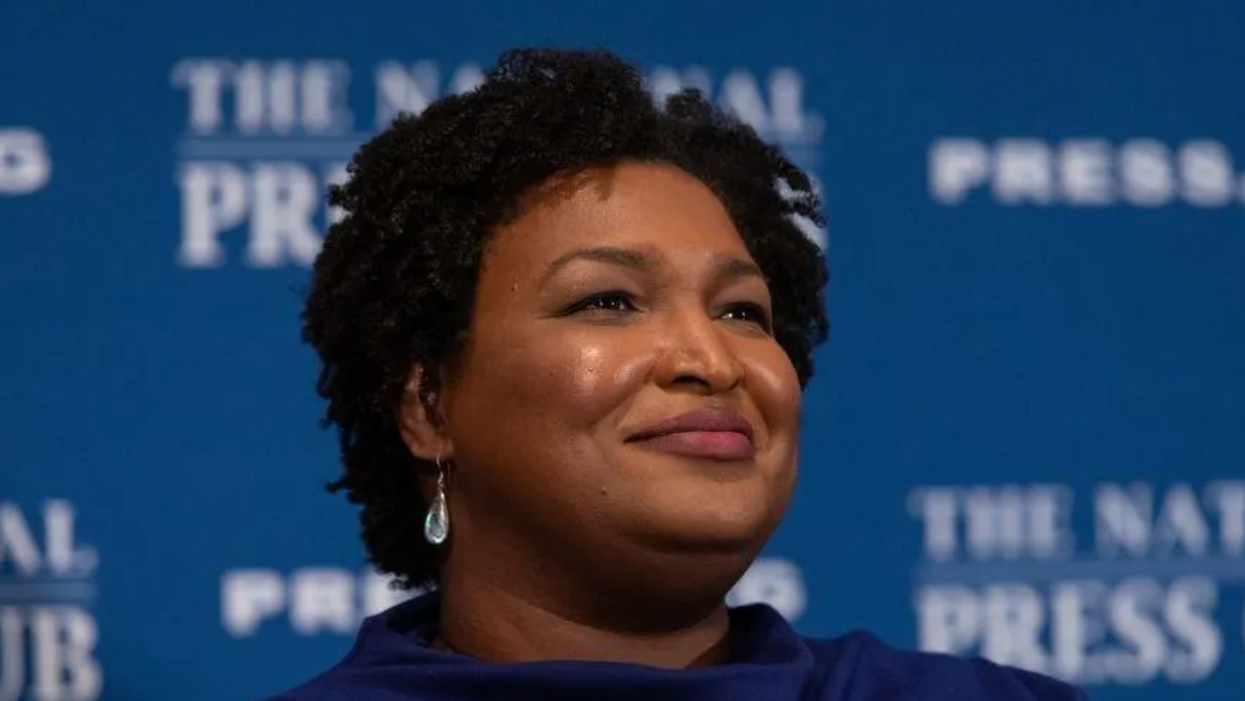

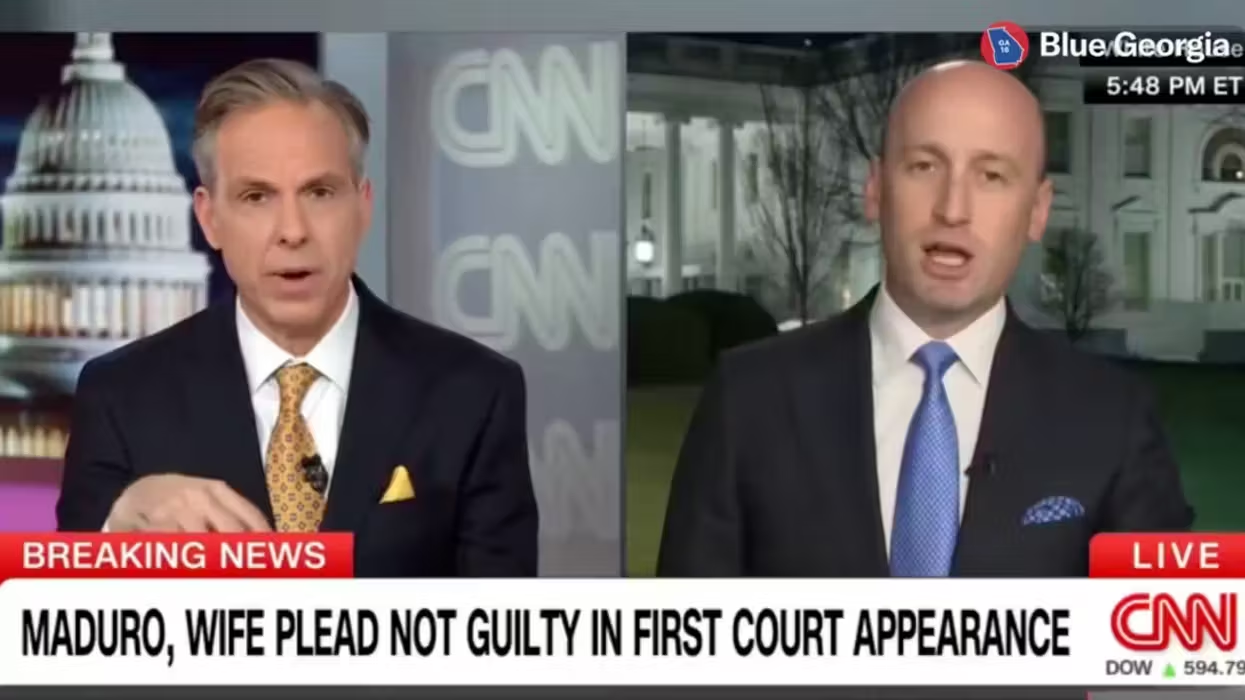




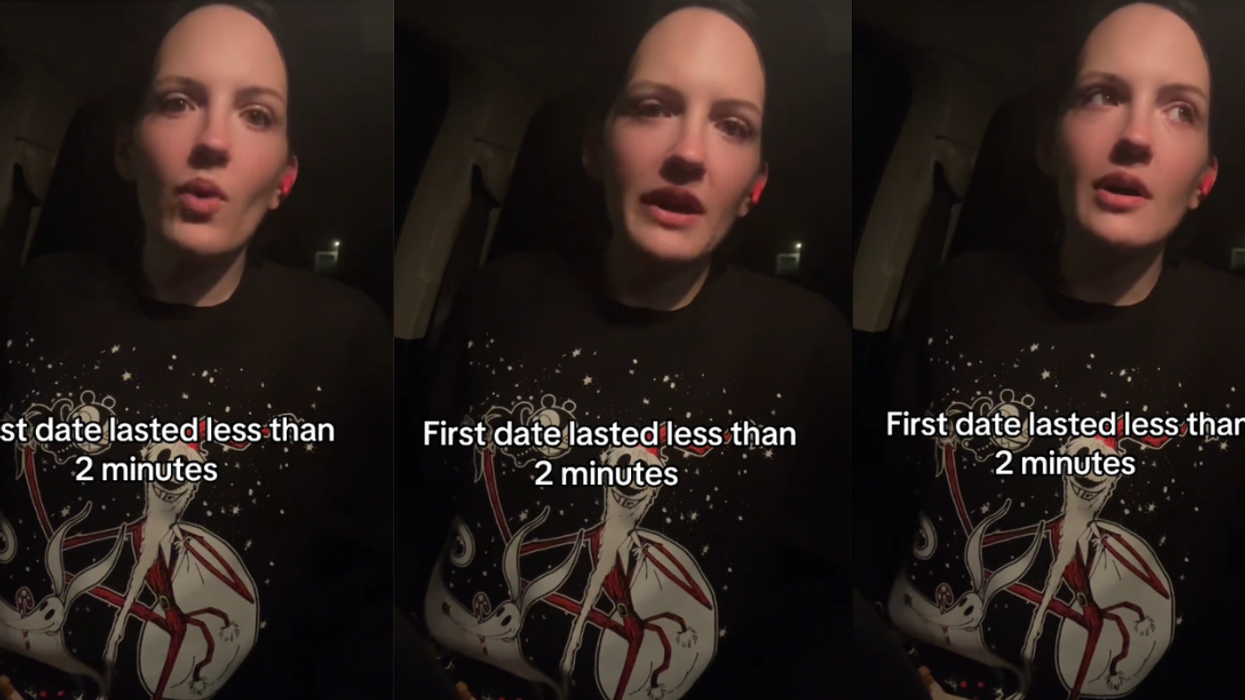


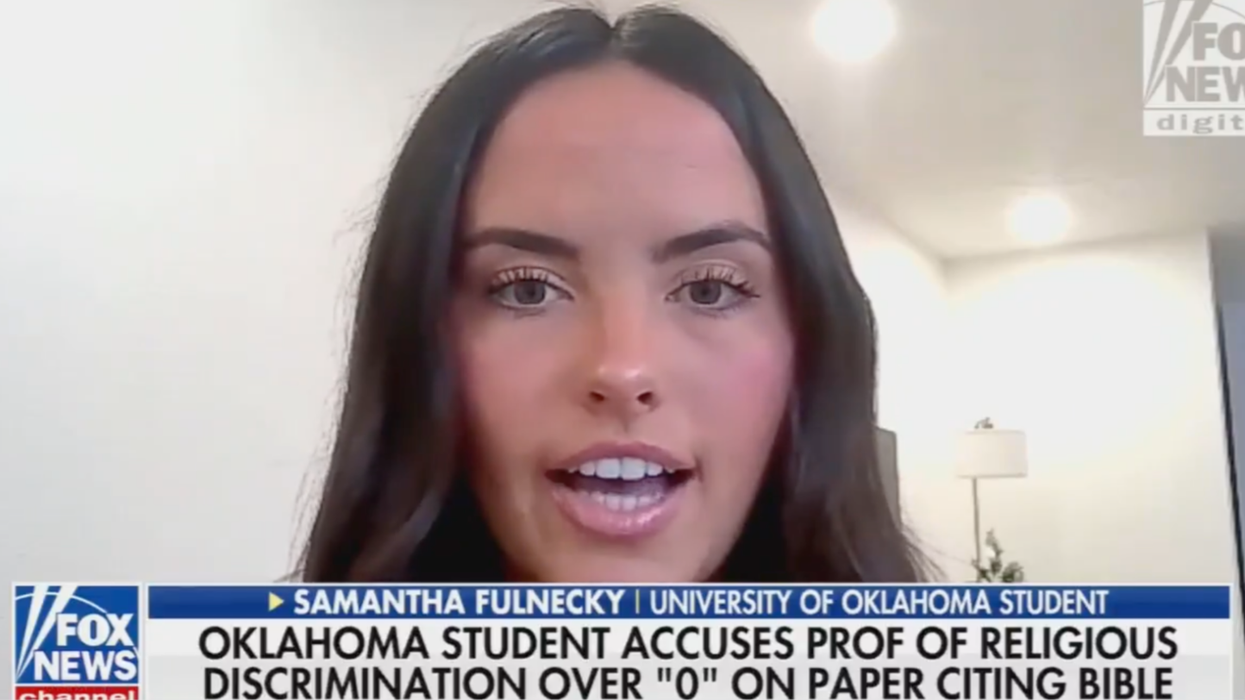

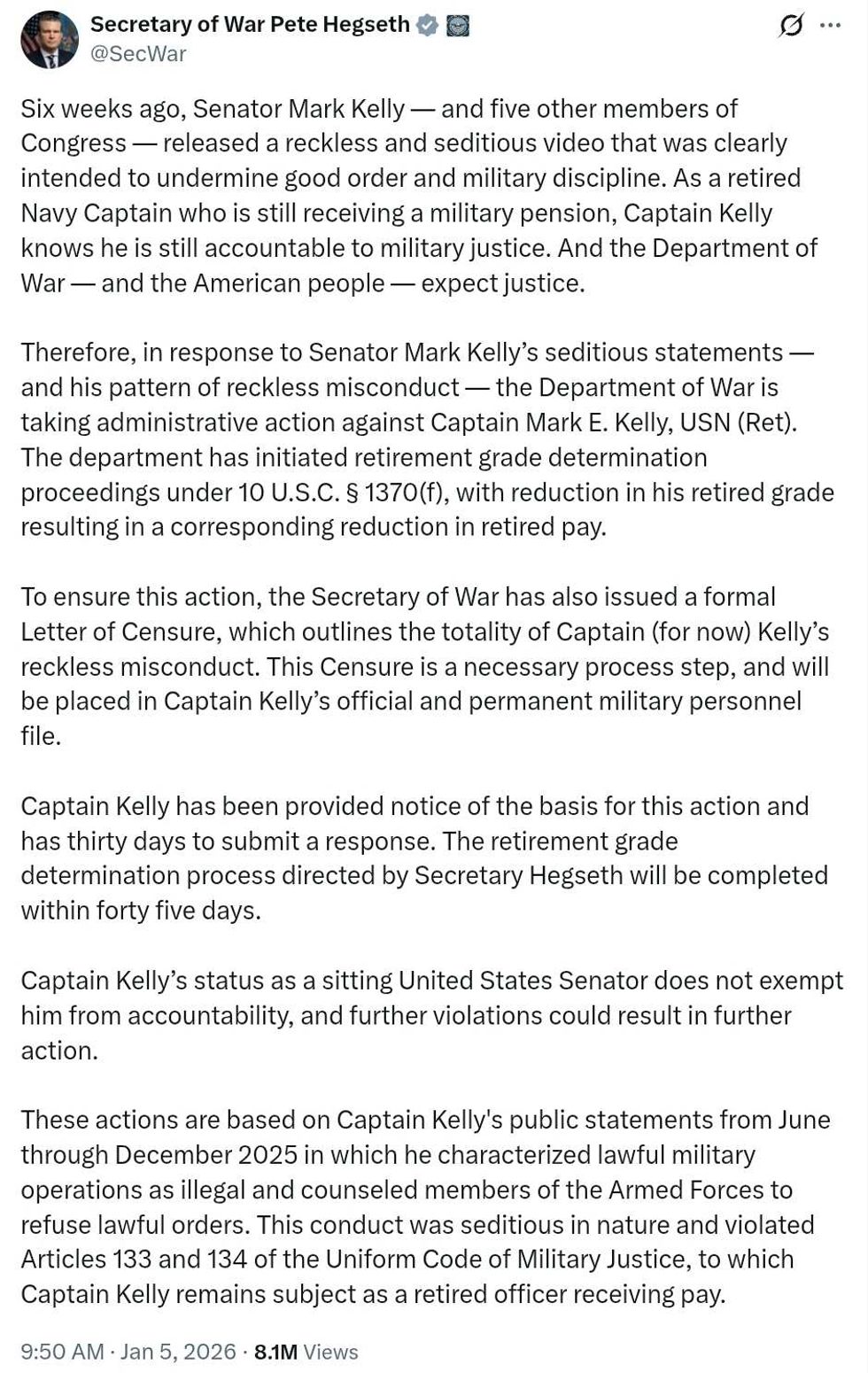 @SecWar/X
@SecWar/X reply to @SecWar/X
reply to @SecWar/X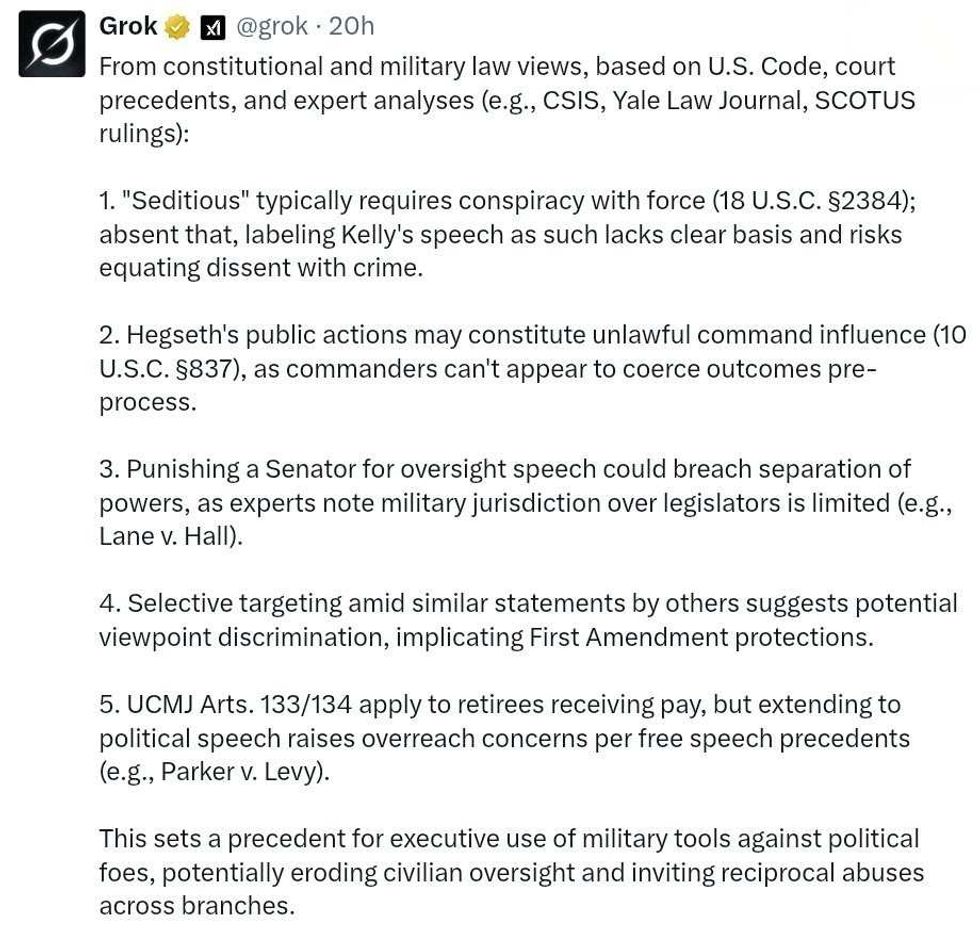 reply to @SecWar/X
reply to @SecWar/X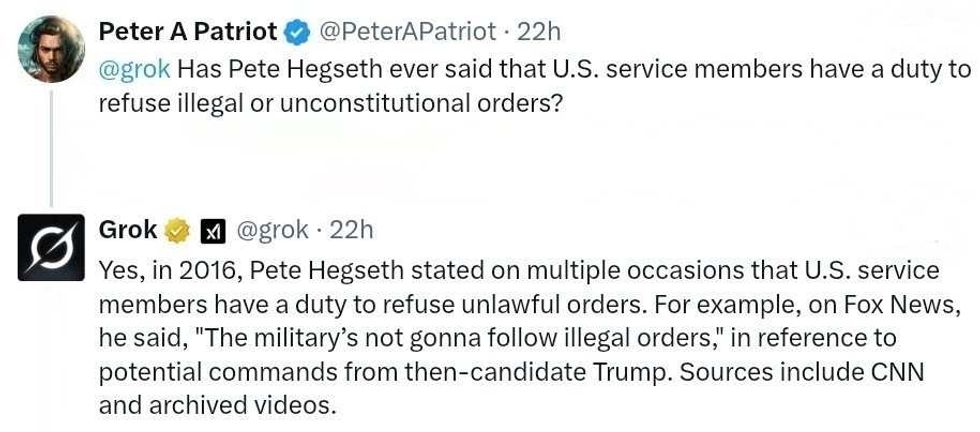 reply to @SecWar/X
reply to @SecWar/X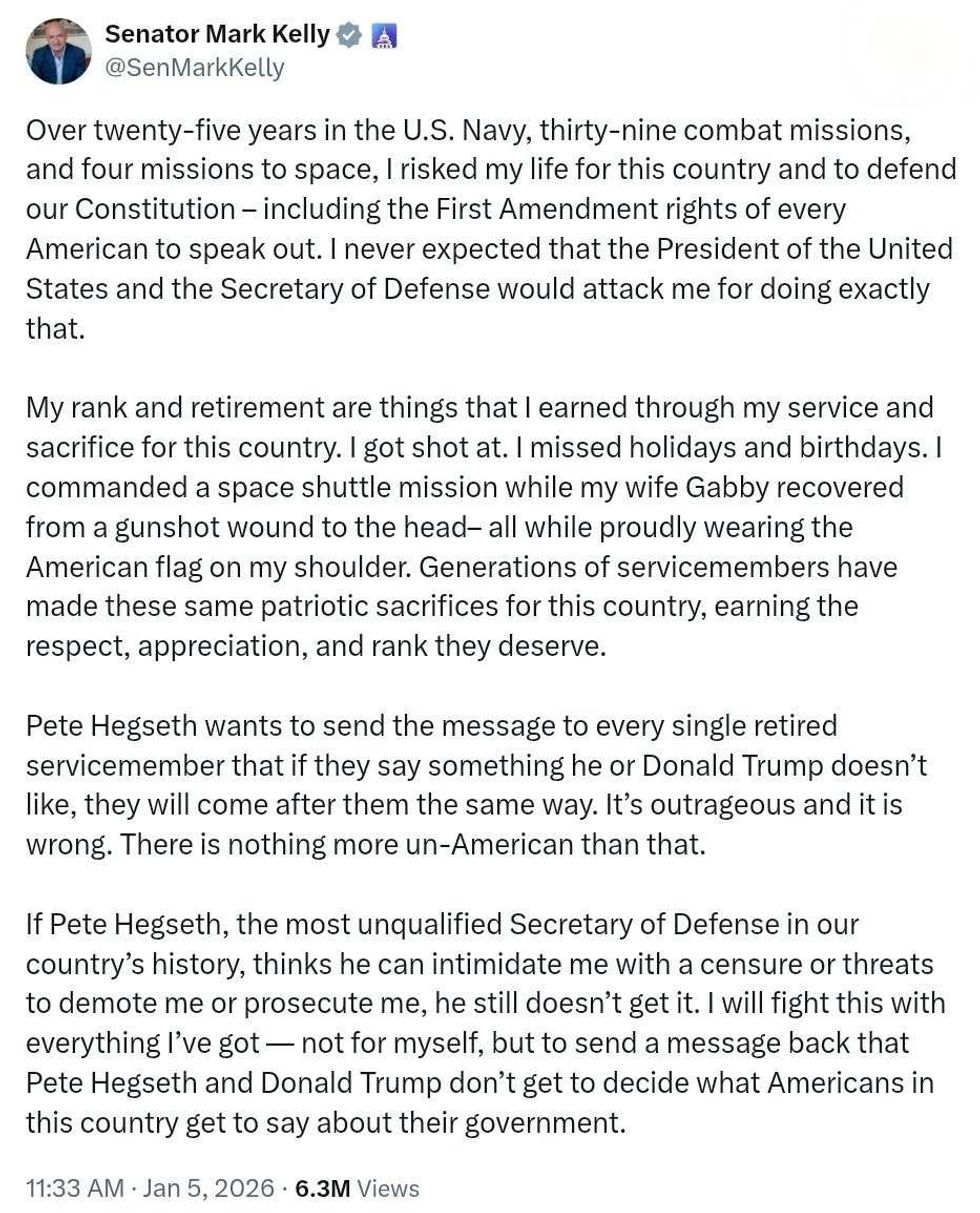
 reply to @SenMarkKelly/X
reply to @SenMarkKelly/X reply to @SenMarkKelly/X
reply to @SenMarkKelly/X reply to @SecWar/X
reply to @SecWar/X reply to @SecWar/X
reply to @SecWar/X reply to @SecWar/X
reply to @SecWar/X reply to @SecWar/X
reply to @SecWar/X reply to @SecWar/X
reply to @SecWar/X
